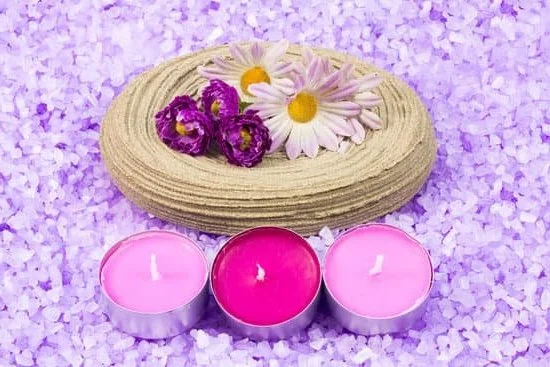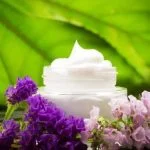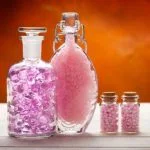Aromatherapy has been used for centuries as a natural remedy for various ailments, and its benefits are now being incorporated into modern products such as pads. Many people find relief from stress, anxiety, and other conditions through the use of aromatherapy pads. This article will explore the science behind aromatherapy, the different types of aromatherapy pads available, and how long the effects typically last.
Aromatherapy works by stimulating the smell receptors in the nose, which then send signals to the part of the brain that controls emotions. The use of essential oils in aromatherapy can have a calming or energizing effect on individuals, depending on the type of oil used. Understanding how this process works on pads can help users make informed decisions about their use and duration.
Different factors can affect how long aromatherapy lasts on a pad, such as temperature, humidity, and the quality of the pad itself. By understanding these variables, users can determine how to maximize the benefits of aromatherapy pads for extended periods. In the following sections, we will delve deeper into these factors and provide tips for prolonging the effects of aromatherapy on pads.
The Science Behind Aromatherapy
Aromatherapy works on pads through the process of diffusion. When essential oils are applied to the pad, they begin to evaporate and release their aromatic molecules into the air. These molecules are then inhaled and can have various effects on the body, such as promoting relaxation, improving mood, or providing relief from certain symptoms.
The pads themselves are designed to hold and diffuse the essential oils slowly over time. This allows for a longer-lasting and more consistent release of the oil’s fragrance and therapeutic properties. The design of the pad plays a crucial role in controlling how quickly the oil evaporates and how long the aromatherapy effects last.
One important factor in how aromatherapy works on pads is the quality of the essential oils used. High-quality oils generally have a stronger scent and contain more potent therapeutic compounds, which can affect how long the aromatherapy lasts on the pad. Additionally, different types of essential oils have varying evaporation rates, which can also impact the duration of aromatherapy on pads.
| Factor | Effect |
|---|---|
| Temperature | Higher temperatures can cause essential oils to evaporate more quickly |
| Humidity | Higher humidity levels can slow down the evaporation rate of essential oils |
| Quality of Pad | The material and design of the pad can affect how efficiently it diffuses essential oils |
Types of Aromatherapy Pads
Aromatherapy pads come in a variety of options, each designed to offer unique benefits and experiences. Understanding the different types of aromatherapy pads available can help you choose the best option for your needs and preferences.
One popular type of aromatherapy pad is the essential oil-infused pad. These pads are designed to hold and release essential oils, allowing you to enjoy the therapeutic benefits of aromatherapy wherever you go. Whether you prefer soothing lavender, invigorating peppermint, or uplifting citrus scents, there’s an essential oil-infused pad for every preference.
Another type of aromatherapy pad is the heat-activated pad. These pads are infused with essential oils and can be activated by applying heat, such as placing them in a microwave or using a heating pad. The warmth helps release the aroma from the pad, providing a soothing and comforting experience that can last for hours.
In addition to these options, there are also reusable and disposable aromatherapy pads. Reusable pads can be refreshed with new essential oils as needed, while disposable pads are meant for one-time use. Considering factors like durability, sustainability, and convenience can help you determine which type of aromatherapy pad is best suited for your lifestyle and preferences.
| Type | Description |
|---|---|
| Essential Oil-infused Pad | Pads designed to hold and release essential oils for therapeutic benefits on-the-go. |
| Heat-Activated Pad | Pads infused with essential oils that release aroma when activated by heat, providing a comforting experience. |
| Reusable vs Disposable Pads | Differences between reusable pads that can be refreshed with new oils versus one-time use disposable pads. |
Factors Affecting the Duration of Aromatherapy on Pads
Aromatherapy pads are a popular way to enjoy the benefits of essential oils throughout the day, whether it’s for relaxation, mental clarity, or stress relief. However, the duration of aromatherapy on pads can be affected by several factors such as temperature, humidity, and the quality of the pad itself.
Temperature plays a significant role in how long aromatherapy lasts on a pad. Higher temperatures can cause the essential oils to evaporate more quickly, reducing the longevity of the aroma. On the other hand, lower temperatures can help prolong the scent. It’s important to be mindful of where you store your aromatherapy pads to ensure that they remain at an optimal temperature for lasting effects.
Humidity levels can also impact how long aromatherapy lasts on a pad. Higher humidity can cause essential oils to dissipate faster, while lower humidity can help maintain the aroma for a longer period. Understanding your environment and adjusting accordingly can make a difference in the effectiveness of your aromatherapy experience.
Additionally, the quality of the pad itself can determine how long aromatherapy lasts. A high-quality pad made from durable materials will not only hold onto essential oils better but also release them more effectively over time. It’s important to invest in well-made aromatherapy pads to ensure that you’re getting the most out of your experience.
Overall, understanding these factors and taking proactive steps can help maximize the duration and effectiveness of aromatherapy on pads. By controlling temperature and humidity levels and investing in quality pads, individuals can ensure that they experience long-lasting benefits from their aromatherapy practice.
How Long Does Aromatherapy Last on Pad
Aromatherapy is a popular method for delivering the benefits of essential oils, and it is commonly used with pads for convenient and long-lasting relief. Many people wonder how long the effects of aromatherapy can last on a pad, and the answer depends on several factors.
Factors Affecting Duration
The duration of aromatherapy on a pad can be affected by various factors, including the type and quality of essential oil used, the temperature and humidity of the environment, as well as the quality of the pad itself. Higher-quality essential oils tend to last longer on pads compared to lower-quality oils. Additionally, environmental factors such as high temperatures and humidity levels can cause the essential oils to evaporate more quickly, reducing their longevity on the pad.
Typical Duration and Variations
In general, the effects of aromatherapy on a pad can last anywhere from a few hours to a couple of days. However, this duration can vary based on the factors mentioned above. For example, if the pad is exposed to high temperatures or placed in a humid environment, the essential oils may dissipate more quickly. On the other hand, using high-quality essential oils and keeping the pad in a cool, dry place can help extend their effectiveness.
Tips for Prolonging Aromatherapy Effects
To ensure that you get maximum benefits from aromatherapy pads for an extended period, it’s important to take proper care of them. Storing pads in a cool, dry place when not in use can help preserve their potency. Additionally, using high-quality essential oils and replacing pads regularly can also help prolong their effectiveness. By following these tips, you can make sure that your aromatherapy lasts longer on pads for continued relief.
Tips for Prolonging the Effects of Aromatherapy on Pads
Aromatherapy pads are a popular and convenient way to enjoy the benefits of essential oils throughout the day. Whether you use them in your car, at work, or during exercise, it’s important to understand how to make the most of their aromatic effects. By following some simple tips, you can prolong the duration of aromatherapy on pads and maximize their benefits.
To ensure that the effects of aromatherapy last longer on pads, consider the following best practices:
- Choose high-quality pads: The quality of the pad plays a significant role in how long the aroma lasts. Opt for pads made from materials that are designed to hold onto essential oils without evaporating too quickly.
- Use the right type of essential oil: Certain essential oils have longer-lasting aromatic properties than others. For example, base notes like patchouli, sandalwood, and cedarwood tend to linger for a longer period compared to top notes like citrus and floral scents. Consider this when choosing which oils to use on your pads.
- Store the pads properly: When not in use, store your aromatherapy pads in a sealed container or resealable bag to prevent evaporation. Keep them away from direct sunlight and extreme temperatures to maintain their potency.
By implementing these practices, you can extend the duration of aromatherapy on pads and continue to benefit from their therapeutic effects throughout your day.
Remember that environmental factors such as temperature and humidity can also impact how long aromatherapy lasts on pads. Be mindful of these variables and adjust your usage accordingly for optimal results.
Replacing Aromatherapy Pads
Aromatherapy pads are a popular tool for experiencing the benefits of essential oils, but it’s important to know when and how often to change them in order to maximize their effectiveness. Whether you use aromatherapy pads in your car, office, or home, understanding the best practices for replacing them can help ensure that you continue to experience the desired effects.
When to Replace Aromatherapy Pads
The frequency with which you should replace aromatherapy pads depends on several factors. One of the key indicators that it’s time for a replacement is when the scent of the essential oil becomes less potent or fades completely.
Additionally, if the pad becomes dirty or discolored, it’s a good idea to change it out for a fresh one. Some individuals may also choose to replace their aromatherapy pads more frequently if they suffer from allergies or sensitivities that could be exacerbated by prolonged exposure to used pads.
How Often Should You Change Them
There is no set rule for how often you should change your aromatherapy pads, as it can vary based on personal preference and usage. However, in general, most people find it beneficial to replace their pads every 2-4 weeks to maintain the potency of the essential oils and continue experiencing their therapeutic benefits.
Those who use their aromatherapy pads daily may need to replace them more frequently than those who use them infrequently. It’s also important to consider any changes in climate or environment, such as increased humidity or exposure to extreme temperatures, which could impact the longevity of the pad and necessitate more frequent replacements.
Best Practices for Replacing Aromatherapy Pads
When replacing your aromatherapy pad, it’s important to choose high-quality replacement pads specifically designed for your diffuser. This ensures that you get the best performance and maximum diffusion of essential oils.
Additionally, be sure to clean any residue or build-up from your diffuser before inserting a new pad in order to prevent cross-contamination of scents and maintain the purity of each essential oil used. By following these best practices for replacing aromatherapy pads, you can prolong their effectiveness and continue enjoying the benefits of aromatherapy for an extended period.
Conclusion
In conclusion, aromatherapy offers various benefits for users seeking relief from physical discomfort and stress. By understanding the science behind aromatherapy and the different types of aromatherapy pads available, individuals can make informed choices about the best options for their needs. Factors such as temperature, humidity, and pad quality can affect the duration of aromatherapy on pads, but by following best practices for use and maintenance, users can prolong the effects of their aromatherapy pads.
When considering how long aromatherapy lasts on a pad, it’s important to recognize that the typical duration can vary based on individual factors and specific product formulations. While there are general guidelines for how often to replace aromatherapy pads, paying attention to personal preferences and responses to aromatherapy can also be helpful in determining when it’s time for a replacement.
By staying attuned to one’s own needs and experiences with aromatherapy pads, individuals can optimize the benefits they receive from using these products.
To maximize the benefits of aromatherapy on pads for long-lasting relief, users should focus on selecting high-quality pads and paying attention to environmental factors that may affect their performance. Additionally, practicing good maintenance habits and replacing pads as needed will contribute to ongoing effectiveness. Ultimately, by understanding how different variables impact the duration of aromatherapy on pads and taking proactive steps to prolong its effects, individuals can experience consistent relief and well-being from using these products.
Frequently Asked Questions
How Long Does It Take for Essential Oils to Wear Off?
The duration of essential oils can vary depending on factors such as the type of oil, its concentration, and the surrounding environment. Generally, essential oils can last anywhere from a few hours to a day before wearing off.
How Often Do You Need to Replace Aroma Pads?
The frequency of replacing aroma pads depends on how often you use them and the intensity of the scent. It’s recommended to replace aroma pads every 1-2 weeks to ensure that they continue to effectively disperse the essential oil.
How Many Drops of Essential Oil on Pad?
The number of drops of essential oil needed on a pad typically ranges from 2-4 drops. However, it’s important to follow the specific instructions provided with your diffuser or aromatherapy device to determine the appropriate amount for optimal scent dispersion without overwhelming the senses.

Are you looking for a natural way to improve your health and wellbeing?
If so, aromatherapy may be the answer for you.





